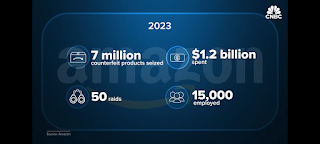This podcast explains so much about human nature, politics, and conspiracy theories based on whether our brain is wired as prey or predator. If you want to skip past the researcher's personal history to the meat of the episode, start at 23:32.
Dividing people into those who 1) have a need for closure vs 2) are ok with uncertainty turns out to be much more useful than the classic "type A vs B" archetype. This affects everything in our lives - whether we like abstract art, are prone to like conspiracy theories, what political party we lean towards.
To me, it also explains why politicians will lean into bizarre things like scaremongering of immigrants being murderers and rapists, or that transgender surgery is happening in schools, or immigrants are eating cats and dogs.
"our brains are wired to make sense of the world. You know, we are sense-making animals. And each of these traits in some way speaks to our drive to make sense. How quickly do we need to make sense of the world? How much are we willing to live with uncertainty? This difference turns out to have ramifications in all kinds of different areas. One of the areas that you have looked at and others have looked at is in our appreciation of aesthetics."
"conspiracy theory beliefs are really rooted in a very simple causal mechanism. They say that whatever the crisis is, or the horrible event is, it's not some complex systemic thing. It is something that has been caused by powerful people operating in the shadows to benefit themselves and harm others. And it provides a really quick closure to what could be a complex problem...what you're looking for is, I'm dealing with a situation of high ambiguity, high uncertainty, and if I can just locate the culprit that's responsible for all of this, in some ways it moves you from that world of uncertainty to a world of predictability and closure."
"I think about need for cognition as something that's a bit of a luxury. Because if you're high in need for cognition, it signals that you have the time, you feel that you have the time and security to be able to dedicate to thinking about something for a long period of time. Having high need for cognition is actually correlated with people who are less likely to be monitoring their environments for threat. If you're not monitoring for threat, and you're not looking around the corner to see who's lurking, you can just, you know, I call it cud-chewing. You can chew your cud all day."
"people who enjoy thinking about things, and you know, really kind of struggling to solve problems, these are the same people who really enjoy abstract art and syncopated jazz, for example, over really predictable, like pop music or country music, that has a more predictable cadence, chorus, and verse structure."
"people who enjoy thinking actually are less likely to be persuaded by more emotional or heuristic kind of appeals. They require evidence-based argumentation to be persuaded by information."
"I think about this in terms of how people monitor for threats in their environment. And when I think about it that way, it actually gives me sort of a unifying narrative that helps explain a lot of what's going on... It seems that individuals are born, perhaps genetically...predisposed, to have physiological systems that deal with threat in their environment. And that shapes physiological patterns, which then shape psychological tendencies. And for people who are high-threat monitors, they are all about survival in the face of threat, and it's on their mind all the time. What serves these people best is making decisions quickly and efficiently based on heuristics, emotions, intuition, and shortcuts. That is what causes them to have this lower need for cognition. It's not that they can't, it's that it doesn't make sense for them based on their sort of psychophysiological predispositions. Similarly, these are folks who, because they're monitoring for threat, of course they're going to want to be in situations that are highly certain, ordered, predictable. They're not going to be very high in tolerance for ambiguity because that exposes them to threat."
"In a survey, we looked at whether or not individuals who had higher or lower need for closure had different levels of support for transgender individuals. What we found is that even accounting for all these other things, need for closure is associated with more negative opinions of transgender people, transgender candidates, and transgender rights. And this is one of those things that is intuitive on its face. And when we thought about studying this construct, I just thought, you know, for folks who need for there to be a yes or no answer, black and white, it would make sense for these folks, the concept of gender fluidity or the concept of gender being a social construct, that I could imagine that that might be hard for them to reconcile. And sure enough, our results actually showed quite a robust effect of need for closure on these outcomes."


